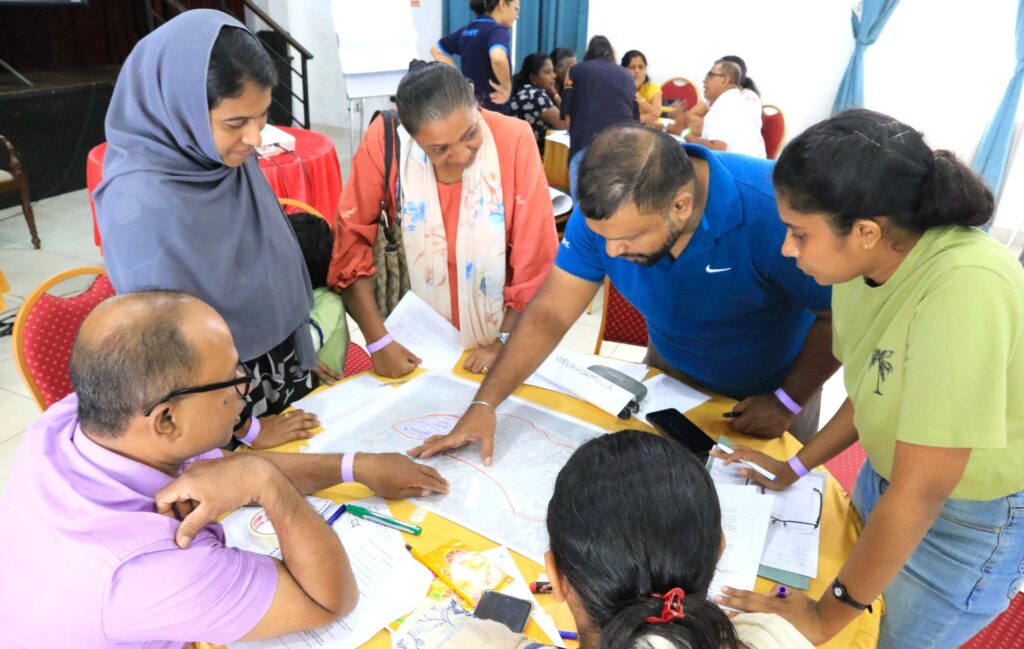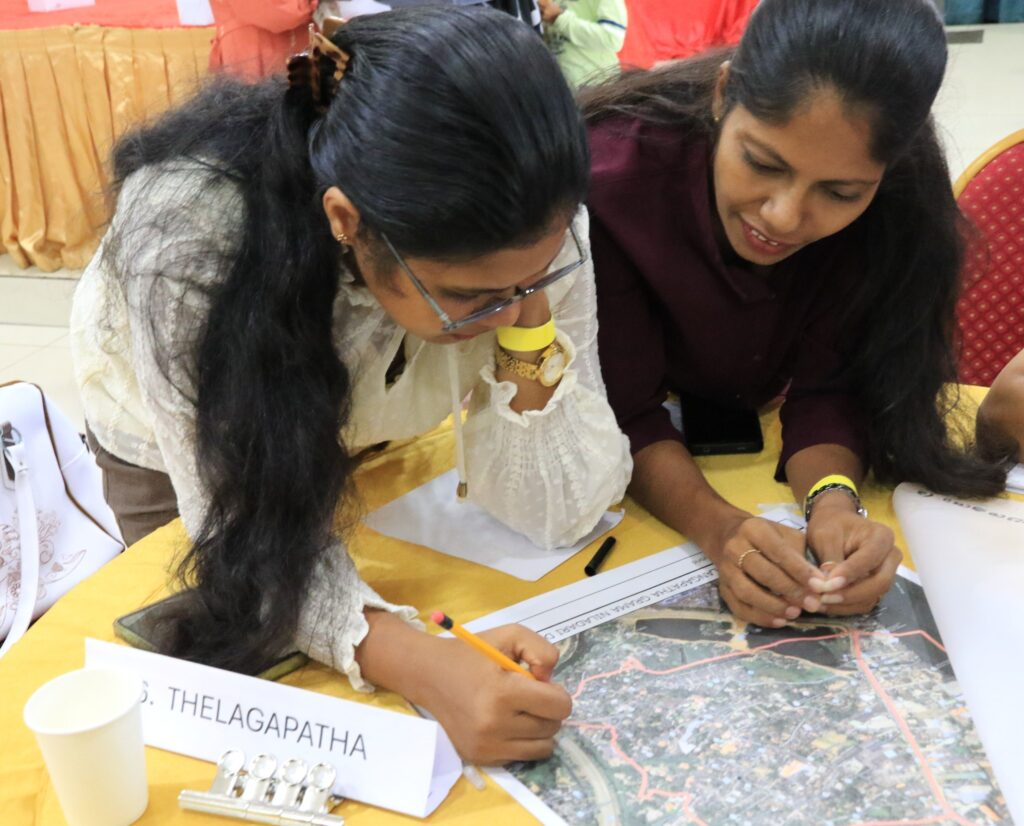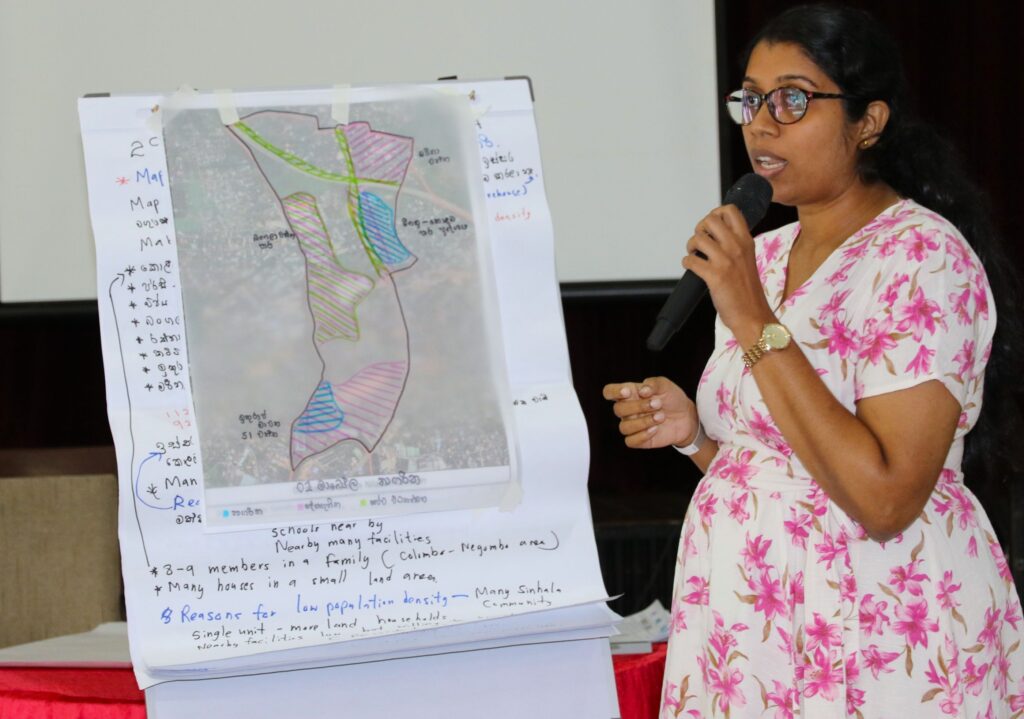Stakeholder consultation held to map vulnerabilities in the city of Wattala-Mabola
 29 August 2025, Colombo, Sri Lanka. UN-Habitat in partnership with the Wattala-Mabola Urban Council (UC) held a stakeholder validation workshop to map vulnerabilities in the city of Wattala-Mabola recently. This workshop, held at the Wattala-Mabola UC, is a key component of UN-Habitat’s Resilient Settlements for the Urban Poor flagship programme (also known as RISE-UP).
29 August 2025, Colombo, Sri Lanka. UN-Habitat in partnership with the Wattala-Mabola Urban Council (UC) held a stakeholder validation workshop to map vulnerabilities in the city of Wattala-Mabola recently. This workshop, held at the Wattala-Mabola UC, is a key component of UN-Habitat’s Resilient Settlements for the Urban Poor flagship programme (also known as RISE-UP).
This full day interactive workshop focused on validating maps developed by UN-Habitat Sri Lanka through a comprehensive geo-spatial analysis using secondary data and open data sources, pertaining to the three dimensions of multilayered vulnerabilities: urbanization, climate change and biodiversity.
In her opening remarks, Ms. Harshini Halngode, Country Programme Manag er of UN-Habitat Sri Lanka, stated that Sri Lanka, like many countries in the Global South, urgently needs practical solutions to strengthen resilience, reduce vulnerabilities, and open new opportunities for inclusive growth. She further stated that through the Rise-Up project’s Multi-layered Vulnerability Assessments, UN-Habitat aims to identify the most at-risk settlements.
er of UN-Habitat Sri Lanka, stated that Sri Lanka, like many countries in the Global South, urgently needs practical solutions to strengthen resilience, reduce vulnerabilities, and open new opportunities for inclusive growth. She further stated that through the Rise-Up project’s Multi-layered Vulnerability Assessments, UN-Habitat aims to identify the most at-risk settlements.
Over 45 participants representing residents of the Wattala-Mabola Urban Council, and officers from Government institutions including Wattala-Mabola Urban Council, Wattala Divisional Secretariat; Urban Development Authority (UDA); National Building Research Organization (NBRO) and Urban Settlements Development Authority (USDA) participated in the validation workshop.
The participants worked in six groups representing the six administrative divisions, referred to as Grama Niladhari (GN) Divisions of the Wattala-Mabola Urban Council area, mapping key information aligning with the identified indicators under each vulnerability dimension. The groups identified the most vulnerable areas, reasons for current vulnerabilities and quantitative and spatial trends.
 Following the validation exercise, representatives from each group presented their key findings to the plenary group. The key findings included that some maps based on secondary data lacked accuracy and required correction and that settlements which were previously not identified as vulnerable were highly vulnerable in terms of the indicators used. A high level of interest was shown by stakeholders in obtaining the validated maps and data for use in on-going assessments and planning processes.
Following the validation exercise, representatives from each group presented their key findings to the plenary group. The key findings included that some maps based on secondary data lacked accuracy and required correction and that settlements which were previously not identified as vulnerable were highly vulnerable in terms of the indicators used. A high level of interest was shown by stakeholders in obtaining the validated maps and data for use in on-going assessments and planning processes.
This is the first in a series of validation workshops that will lead towards the development of Multi layered Vulnerability Assessment reports for the two cities of Wattala-Mabola and Colombo. The reports will support the two local government institutions to develop bankable proposals, addressing issues of climate change, loss of biodiversity, and unplanned urbanization thereby improving access to resources for greener, safer, and more climate resilient cities. The RISE-UP Project is funded by the 2030 Agenda for Sustainable Development Sub-Fund under the UN Peace and Development Trust Fund (UNPDF).
